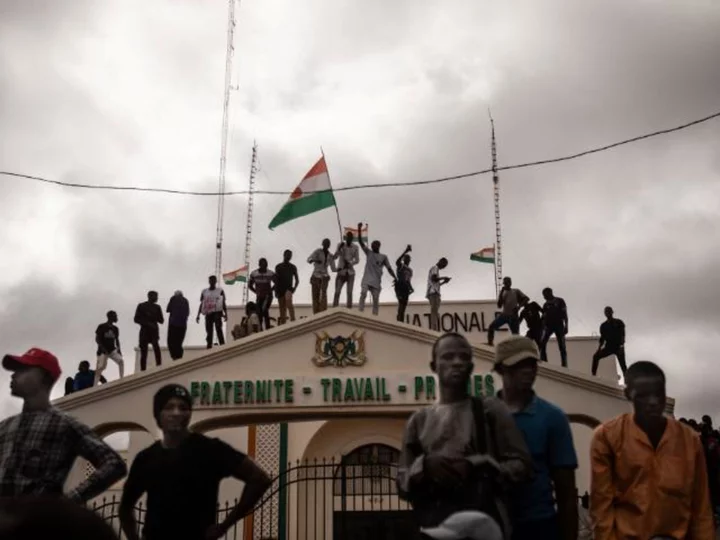The US State Department is preparing to officially designate the military takeover in Niger as a coup d'etat as soon as next week, three US officials told CNN, a decision which could have dramatic implications on the ability of the US to work with a crucial counter-terrorism partner in the region.
The department is set to announce that the US will be suspending certain forms of assistance to Niger as a result of the coup designation, an official and another person familiar with the discussion said.
The US embassy can continue to operate and the US military will be able to legally keep forces in Niger if a coup designation is made, US officials said. But the Pentagon is still assessing how the change will impact the approximately 1,000 US forces stationed in the country, officials said.
US officials said it is unlikely that US forces withdraw completely, and some will probably stay in a more limited intelligence gathering role.
"As we continue our diplomatic engagements to preserve civilian rule in Niger we are continuing to assess additional next steps but have nothing to preview at this time," a State Department spokesperson said.
A Pentagon spokesperson declined to comment.
The administration could continue with life-saving and other kinds of assistance that are important for US security interests while simultaneously suspending other assistance to the government, including economic and security assistance. Those details are still being ironed out.
Nigerien military leaders overthrew the democratically elected president, Mohamed Bazoum, in July. But, unlike some allies, the US had been reluctant to formally label the takeover as a "coup," because it is a legal designation that would require the US to restrict certain forms of foreign aid to Niger -- most notably, security assistance funding for Nigerien forces.
The coup designation could result in US funding and support for the Nigerien military being cut off, which the US military has sought to avoid -- even as France announced last week that it was pulling all of its troops out of the country by the end of this year. The US has worked to support Nigerien forces for a decade to bolster their fight against terrorists in Africa's Sahel region, and the US has several bases inside Niger from where it conducts counterterrorism operations.
According to the US Embassy in Niamey, since 2012, the Pentagon and State Department "have provided Niger more than $350 million in military assistance equipment and training programs -- one of the largest security assistance and training programs in sub-Saharan Africa."
But US law requires that funds appropriated by Congress for training and equipping a foreign military must be restricted in the event that a "duly elected" country's leader has been overthrown by that country's military.
"There has been frustration in Congress with the administration's lack of communication with the Hill, and the administration's slow decision-making process," a person familiar with the discussions said.
Secretary of Defense Lloyd Austin said in Djibouti last week that the US still has "essentially the same footprint in Niger" as it did before the takeover, and has continued conducting intelligence, surveillance and reconnaissance missions for the purposes of protecting the US forces still stationed there. But, he said, the US has "not resumed any operations with the Nigerien forces."
The US military mission in Niger is one of the main reasons why the US held off so long on legally declaring the situation a military coup d'etat, instead engaging in extensive diplomacy to try to reverse the Nigerien military takeover, officials previously told CNN. But those diplomatic efforts haven't been successful, and the military is still in power.
"We've come very close to say, again, that this is an attempted coup," Deputy Pentagon Press Secretary Sabrina Singh said on August 15 when asked why the US had not made the legal designation. "I think, by all means, from State Department, from DOD, from other levels of government, we are trying to work through this in a peaceful manner. As you know, Niger is quite a critical partner to us in the region."
The Secretary of State could issue a waiver to reinstate the military aid once a coup is determined, but only if he decides that it is in the national security interest of the United States and consults with Congress first, according to the Congressional Research Service. Congress for the first-time last year incorporated the waiver into its 2023 omnibus spending bill.
Senior Pentagon officials believe that keeping a presence in Niger is vital to efforts to tackle terrorism in the region and believe that it's feasible even amid the domestic political turmoil there. Several of the junta leaders have worked with and been trained by the US as part of the US' security cooperation with the country, current and former officials told CNN, and Nigerien military leaders have not voiced anti-American sentiment or asked the US to leave.









